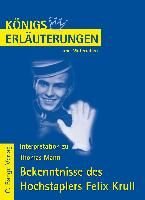http://andrejkoymasky.com/liv/fam/biom2/mann05.html
(June 6, 1875 - August 12, 1955) Germany
Writer, essayist
Novelist and critic, born in the Hanseatic city of Lübeck; died in Zurich. Mann was particularly concerned with te theme of the artist's relation to society. As a schoolboy, Thomas experienced intense infatuation for two of his classmates, Armin martens and Willri Timpe. They seem to have responded with, at best, an embrace and, at worst, bewilderment.
When he was 25 he had a four years relationship with Paul Ehremberg, then 23, a "passionate love" and "hecstatic happiness" followed by periods of "self-disgust" (in Thoman Mann's own words). His last love was Klaus Heuser, the 17-year-old son of Mann's acquaintance Werner Heuser, an art historian.
He was awarded the Nobel Prize for literature in 1929. In 1933, his opposition to the Nazi regime forced him into exile. In 1936 he settled in the U.S.A., and in 1944 he became an American citizen. After the war, in 1947, he returned to Switzerland.
Mann experienced a final moment of passionate desire for Franz Westermeier, a young man who waited on him during his stay at Zurich Hotel in 1950. While Heuser responded to Mann's affection, Westermeier seems to have been rather oblivious to the nature of the elderly man's feelings.
Among Mann's works are the comic masterpiece Die Bekenntnissedes Hochstaplers Felix Krull (Confessions of Felix Krull, 1954), and a number of short stories including Tonio Kröger (1903), and Der Tod in Venedig (Death in Venice, 1913). He admits, if one reads carefully his work, that homosexual desire may have inspired his art, but homosexual identity had to be rejected since it threatened not only "society" but his own preeminent status.
Mann's correspondence demonstrates that his gay-themed works had a foundation in personal experience. A new biography, referring to papers that were sealed when Mann died in 1955, reveal that he was exclusively homosexual until his late twenties, and was intensely attracted to men throughout his life. His daughter, Erica Mann, was a lesbian, she married the British poet W.H. Auden in order to get a British passport, and his son, Klaus, was gay.
Thomas Mann (right) with one of his lovers, Armin Matens
- Buddenbrooks (1901)
- Tonio Kröger (1902)
- Tristan (1903)
- Königliche Hoheit (Royal Highness, 1909)
- Der Tod in Venedig (Death in Venice, 1913)
- Betrachtungen eines Unpolitischen (Reflections of an Unpolitical Man, 1918, essays)
- Der Zauberberg (The Magic Mountain, 1924)
- Mario und der Zauberer (1930, Mario and the Magician)
- Lotte in Weimar (1939)
- Appel an die Vermunft (Appeal to Reason, 1930, essay)
- Achtung Europa! (1945, anti-Hitler broadcasts)
- Deutsche Hörer (1945, anti-Hitler broadcasts)
- Leiden und Gröbe der Meister (The Sufferings and Greatness of the Masters, 1933, essays)
- The Beloved Returns
- Die vertauschten Köpfe (The Transposed Heads, 1940)
- Joseph and his Brothers
- Doktor Faustus (1947)
- Der Erwählte (1951)
- Die Betrogene (1953)
- Bekenntnisse des Hochstapler's Felix Krull (Confessions of Felix Krull: Confidence Man, 1954)
- Last Essay (1959.)
- Sketch of My Life (1961)

 https://wordery.com/bekenntnisse-des-hochstaplers-felix-krull-thomas-mann"..nhơ tình yêu của ông đôí vơí tôi, tôi cảm thây mình đươc kính trọng hơn. Môí tình âm thâm của ông mà tôi không nhân thâý! Tôi muôn nói đên tình yêu của Thomás Mann, môt con ngươi chư không muôn nói tơí tình yêu của môt ngươi đàn ông. Bơi vì ông ta đã dạy cho tôi hiêủ là ngươi ta phải tôn trọng tình cảm và tư tương của ngươi khác>"
https://wordery.com/bekenntnisse-des-hochstaplers-felix-krull-thomas-mann"..nhơ tình yêu của ông đôí vơí tôi, tôi cảm thây mình đươc kính trọng hơn. Môí tình âm thâm của ông mà tôi không nhân thâý! Tôi muôn nói đên tình yêu của Thomás Mann, môt con ngươi chư không muôn nói tơí tình yêu của môt ngươi đàn ông. Bơi vì ông ta đã dạy cho tôi hiêủ là ngươi ta phải tôn trọng tình cảm và tư tương của ngươi khác>"Thomas Mann (right) with one of his lovers, Armin Matens
No comments:
Post a Comment